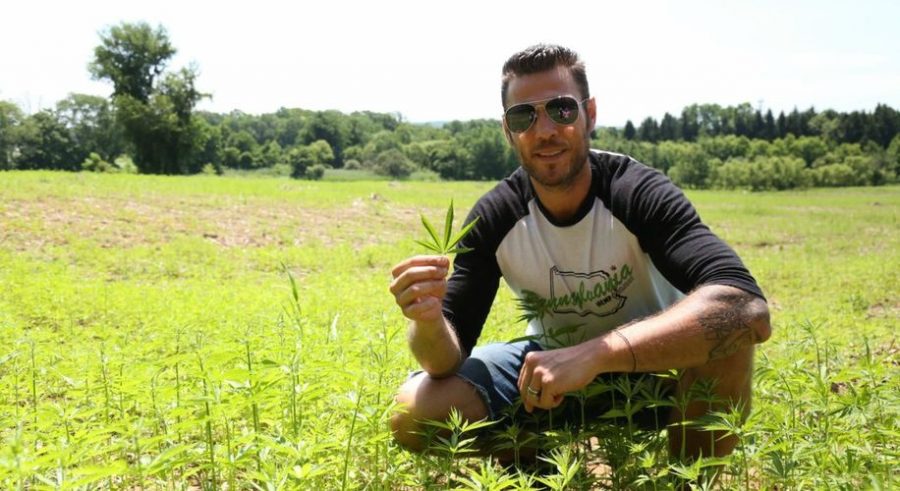Former NHL player advocates for medical cannabis use among athletes
Former Philadelphia Flyers enforcer Riley Cote said at least half of all hockey players consume cannabis and encourages the league to embrace the plant as part of a healthy training and recovery regimen.
In a recent interview with Canadian outlet Sportsnet, Cote talked about the prevalence of cannabis use in the NHL, and the work that needs to be done in order to sort out a more progressive approach to cannabis.
“Good people break bad laws, I guess,” Cote told Sportsnet. “At least half of those guys [I competed with and against] consumed, and a fraction of those guys consumed regularly. Like, every day…. And that number is probably higher.”
Unlike the NBA and MLB, cannabis is not on the NHL’s list of banned substances, but players are still tested for THC, a chemical compound found in cannabis. When athletes go through the THC test, the league’s Performance Enhancing Substances Program Committee reviews the report, and if the amount of THC is high, the players could face a mandatory assessment by doctors working for the league’s Substance Abuse and Behavioral Health. However, Cote said that rarely happens.
“Nobody I’ve heard of has tested positive strictly for THC and been thrown in the substance-abuse program,” Cote said.
Cote added he wants the league to take its policy a step further and allow players to use medical cannabis for conditions like anxiety.
The former Flyer is also part of Athletes for Care, a nonprofit that he co-founded to help current and retired athletes find relief outside of pharmaceuticals and hopefully introduce them to the medicinal benefits of cannabis.
If athletes were to incorporate cannabis as part of their pain treatments, Cote said they would be able to avoid the long-term addiction and side effects associated with pharmaceutical painkillers.
Cote said, “[Cannabis] is a tool and it needs to be treated with respect…. It’s all about increasing quality of life. It’s about helping these guys wake up the next morning, where they can feel functional enough, good enough, [that] they can enjoy their family and not worry about the pain and anxiety — that vicious cycle that generally leads to mental health issues.”










